Uncover Highlander in YouEd



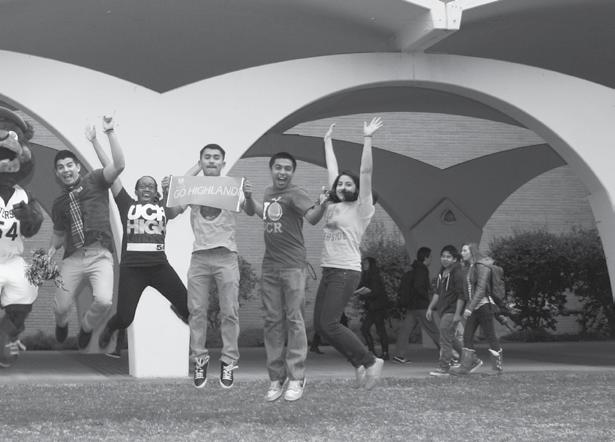
Mission Statement
UCR Residential Education is committed to the development of a safe and inclusive, living and learning community, which holistically fosters both community and scholarly engagement, self-authorship, and social justice.
Vision Statement
The vision of UCR Residential Education is to foster an environment for residential students to thrive in an inclusive educational community by cultivating a culture of highly influential student experiences based in innovation, data informed practices, and intercultural experiences.
UCR Residential Education is dedicated to validating, embracing, and educating ourselves and others on the diverse experiences and identities of all community members we serve. Our goal is to empower each community member to be their authentic selves by validating their lived experiences. In line with UCR’s Principles of Community, we are dedicated to advocating for and producing an environment that values diverse populations, equitable practices, and inclusive communities.
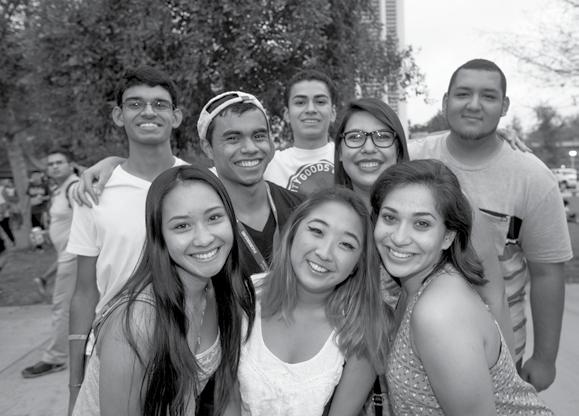
Authenticity
We strive to produce an environment where students and staff can show up vulnerably and true to who they are.
Belonging
We strive to provide an environment where students and staff feel a sense of place within the UCR community and department.
Developmental
We strive to ensure learning is occurring in all aspects of the community and the workplace.
Diversity, Equity, Inclusion
We strive to advocate and produce an environment that sits on the values of diverse populations, equitable practices, and inclusive environments.
Fiscally Responsible
We strive to be good stewards of resident funds and resources.
We strive to bring purpose to all aspects of our work.
Resourceful
We strive to serve as an answer hub and bridge to campus resources.
Teamwork
We strive to work together as a cohesive whole toward a shared vision and goals.
Transformative
We strive to provide an experience to students and staff that leaves a lasting impression on how they see themselves holistically.
Promote Vital Transitional Skills for Students.
• Residential students will be able to apply techniques to manage college transitions.
• Residential students will be able to employ critical thinking skills to challenge societal norms within and outside the University setting.
Promote Individual Student Learning, Development, and Engagement.
• Residential students will be able to identify various leadership and involvement opportunities provided within their residential communities as well as on and off campus.
• Residential students will be able to explore their current personal construct and optimize their experience to become a well-rounded individual.
• Residential students will be able to apply the social skills developed while living on-campus to interactions/experiences outside of the University.
• Residential Education staff will be able to display relevant mentoring techniques with one another and residential students.
Promote a Departmental Culture that Tells Our Story.
• Residential Education staff will be able to articulate goals, programs, and initiatives (regardless of involvement) to internal and external stakeholders.
• Residential Education staff will be able to utilize purposeful communication techniques (both written and verbal) in a timely and succinct manner to inform internal and external stakeholders of departmental achievements.
Promote a Living and Learning Environment Focused on Care and Safety.
• Residential students will be able to equate living on campus has a safe, healthy, and conducive learning environment.
• Residential Education staff will be able to advocate for students’ needs and concerns through intentional personal interactions.
Promote Individual Student Identity Development and Social Justice Practices.
• Residential students will be able to explore their personal identity, perspective, and development.
• Residential students will be able to engage in ally behavior towards and for students of “target” identities.
Promote Collaborative Relationships with Faculty, Staff, and Departments.
• Residential Education staff will be able to implement meaningful and collaborative relationships with outside departments to ensure quality initiatives and programming.
• Residential students will be able to engage in intentional interactions with faculty within the residential community and identify on-campus academic resources; leading to higher GPAs.
Promote an Atmosphere That Strives to be the Best Practice.
• Residential Education staff will be able to annually re-evaluate initiatives and programs to continue current partnerships and build new ones.
• Residential Education will be able to adapt and improve upon national best practices and high-impact practices to meet the needs of the UCR student.
Promote Professional Involvement and Development for Career Staff.
• Residential Education career staff will be able to develop professional development plans to assist with personal and professional progression to meet their desired next step.
• Residential Education career staff will be able to engage in regional and national committees and/or conferences.
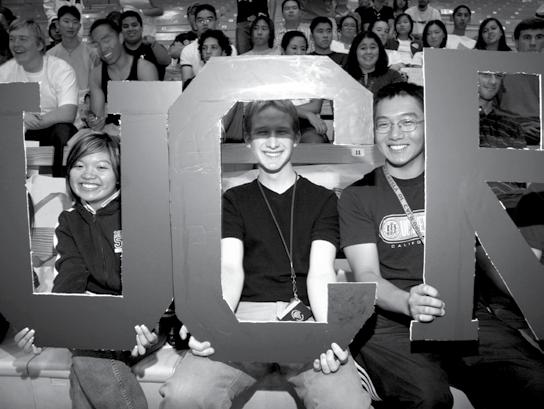
1.1: Influence and Create an Impact on Local, Regional, State, and National Practices and Policies
1.1.1: Create impartial guides to breakdown ballots and voting measures by Fall 2026.
1.1.2: Develop political advocacy and activism workshops by Fall 2027.
1.1.3: Yearly sessions on civil discourse and strategic/persuasive conversations by Fall 2027.
1.1.4: Engage in yearly service-learning projects, in partnership with faculty by Fall 2026.
1.2.1: Implement a” Day of Service” into student leadership training beginning in Summer 2026.
1.2.2: Create informal passive programs to enhance community engagement in residential spaces by Fall 2026.
1.2.3: Create roommate conflict and mediation guide specific to residents by Winter 2026.
1.2.4: Develop and facilitate “Battle of the Communities” by Spring 2026.
1.2.5: Annual review of Residential Curriculum for intentionality and desired outcomes by essential stakeholders.
1.3.1: Annual review of student staff requirements to engage campus partners programs and initiatives.
1.3.2: Develop guidelines for marketing campus events within Housing communities by Summer 2026.
1.3.3: Work collaboratively with campus partners to co-sponsor similar programs and initiatives by Fall 2028.
1.3.4: Develop on-campus housing pride nights in conjunction with Athletics by Summer 2029.
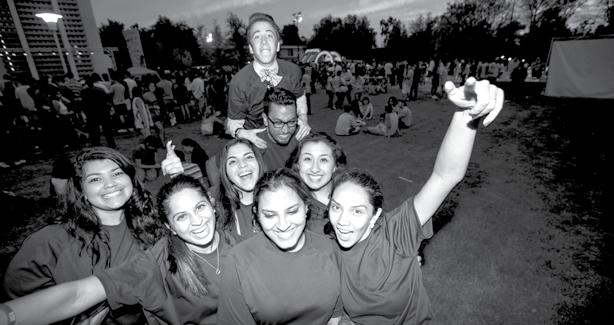
Capacity through all levels of the department
2.1.1: At least 2 professional staff members a year will obtain Intercultural Development Inventory Qualified Administrator (IDI QA) certification.
2.1.2: Implement and complete IDI evaluation on ARD staff by Summer 2025- and second-year student leaders by Summer 2027.
2.1.3: Implement a monthly “R’ Stories” series by Winter 2028.
2.1.4: Create an “Intercultural Capacity” hunt by Fall 2028.
2.2.1: Creation of Assistant Director of Accountability and Community Belonging position by Fall 2025.
2.2.2: Annual mental health education training and refresher for professional staff by Summer 2026.
2.2.3: Host mindfulness retreat for students of color by Fall 2027.
2.2.4: Train professional staff and student leaders to be mental health ambassadors beginning Summer 2026.
2.2.5: Identify and create mindfulness spaces throughout residential communities to implement by Summer 2028.
2.2.6: Assess the possibility of creating residential healing circles and culturally grounded practices; drawing a conclusion by Spring 2027.
2.3.1: Yearly training for student staff on how to best understand, support, and work with students with disabilities,
neurodivergent populations, etc. beginning in Summer 2026.
2.3.2: Create guide on how to best understand, support, and work with neurodivergent community members by Summer 2028.
2.3.3: Evaluate and research the necessity of living-learning communities for neuro-divergent, recovering substance abuse, etc. by Summer 2029.
2.3.4: Development of an “Awareness Book Club” that will provide opportunity to read, learn, and discuss the selected book(s) by Fall 2028.
2.3.5: Implement workshops on implicit bias and privilege to be implemented in Fall 2026.
2.4.1: Annual book read on moving beyond performative practice as a department beginning in Winter 2026.
2.4.2: Quarterly self-reflection on how we have and can incorporate DEI into our current work implemented by Fall 2025.
2.4.3: Development of talking points for strategic inclusion of DEI discussions into routine work processes such as conduct meetings, roommate mediation, accountability conversations, etc. by Fall 2026
2.4.4: Annual training for professional staff members on traumainformed practices and conversations beginning in Summer 2026.
3.1.1: Create an academic conducive environment that leads to an average quarterly Undergraduate Housing GPA of 3.25.
3.1.2: Evaluate current study spaces and how to create more inviting, useful, and beneficial spaces by Fall 2026.
3.1.3: Research what environment is necessary to develop the ideal academically thriving living space/community; drawing a conclusion by Summer 2027.
3.1.4: Implement results of the academically thriving living space/ community research into residential communities by Fall 2028.
3.2.1: Develop a comprehensive passive academic achievement campaign implemented by Winter 2026.
3.2.2: Create and implement an academic support/advising campaign for residents below a 2.0 GPA by Spring 2026.
3.2.3: Evaluate potential implementation of in-house academic tutors (class/subjects/time/days) by Fall 2026.
3.2.4: Create formal study groups for most popular courses by Fall 2026.
3.2.5: Quarterly recognition of students’ academic achievement by National Residence Hall Honorary (NRHH) implementation in Fall 2026.
3.3.1: Create intentional and purposeful spaces for residents to interact with faculty by Fall 2027.
3.3.2: Create space for faculty to host office hours with the residential communities by Fall 2026.
3.3.3: Actively engage faculty in current living-learning community engagement models by Fall 2026.
3.3.4: Develop and implement a faculty fellows’ program by Fall 2027.
4.1.1: Create a graduating student transition program by Winter 2028.
4.1.2: Create an initiative specific to first year students for “early start” to career exploration by Fall 2026.
4.1.3: Establish an annual event that will engage alumni through a facilitated panel on life after UCR by Winter 2027.
4.1.4: Develop an exit survey for all student staff members to evaluate and assess growth, development, and transferable career skills beginning in Spring 2026.
4.1.5: Create Adulting 101 workshops by all 2028.
4.1.6: Create workshops on how to market/brand oneself by Winter 2027.
4.2.1: Develop a monthly workshop that can be assigned as a sanction for conduct violations by Fall 2027.
4.2.2: Build-in intentional conversations around decision making, values, and beliefs into daily practice by Fall 2028.
4.2.3: Implementation of a series exploring selfawareness, values, and perspectives b Fall 2028.
4.2.4: Design and implement an emotional intelligence competency series by Summer 2029.
4.2.5: Design self-reflective exercises to be built-in to conflict/roommate mediations and/or conduct meetings by Summer 2026.
4.2.6: Develop a virtual bi-weekly reflection hour and journaling practice for residents by Summer 2029.
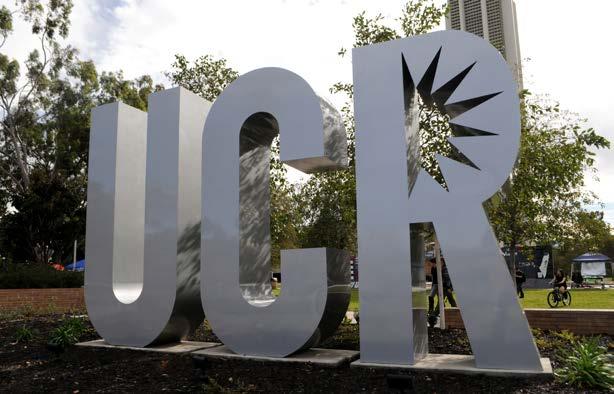
5.1.1: Implement Resident Director Core Competency Development program for career advancement by Summer 2026.
5.1.2: At least 1 staff member per calendar year will apply for professional competency development programs offered by ACUHO-I/NASPA/ACPA and/or other professional organizations.
5.1.3: Monthly workshops in collaboration with Student Affairs to provide core competency workshops by Summer 2026.
5.1.4: Monthly core competency newsletter for all professional staff members implemented in Summer 2026.
5.1.5: Annual assessment (pre and post) to determine current competency awareness, both individually and by supervisor to be implemented in the 2026-2027 academic year.
5.2.1: Provide opportunities for student leaders (RA/PA/RHA/CARA/NRHH) to be involved in departmental committees beginning in Fall 2025.
5.2.2: Develop and implement monthly soft skills development workshops by Fall 2027.
5.2.3: Develop a future student affairs professionals’ group to be implemented in the 2026-2027 academic year.
5.2.4: Establish developmental student leader 1on1 structure by Summer 2026.
5.3.1: Monthly hot topics and/or current events discussion at departmental meetings beginning in Fall 2025.
5.3.2: Professional staff members will propose to submit a scholarly article or to present a program (minimally 1) at one national, regional, or local professional development opportunity or conference yearly.
5.3.3: Each professional staff member will be involved with a regional or national organization as a committee member, chair, executive board member, etc. yearly
5.3.4: Create a thorough and intentional assessment plan for all aspects of the department by Fall 2027.
5.3.5: Continue to build out and intentionally establish a well-rounded Residential Curriculum.